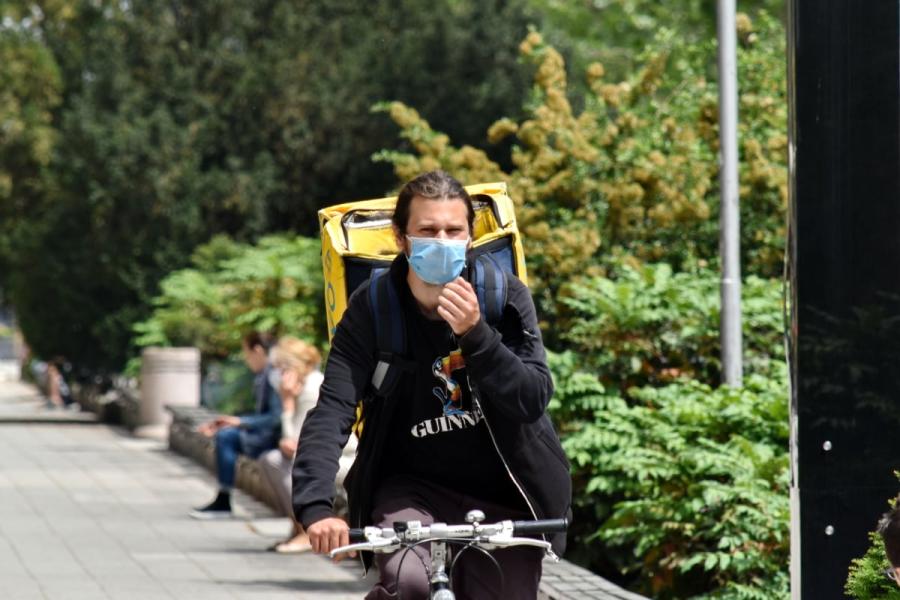
APRIL 15, 2022 — The Supply Chain Transportation & Logistics Center has undertaken a new pro bono project helping Cascade Bicycle Club analyze the transportation and logistics of the Pedaling Relief Project (PRP) and make recommendations for operations improvements.
Seattle is one of the nation’s fastest-growing cities, presenting both opportunities and challenges for food waste. An estimated 94,500 tons of food from Seattle businesses end up in compost bins or landfills each year—some of it edible food that simply never got sold at restaurants, grocery stores, hospitals, schools, or dining facilities. Meantime, members of our community remain food insecure.
In Spring 2020, the Cascade Bicycle Club began the PRP to help food banks deal with an influx of people needing services and restrictions making obtaining services more difficult. PRP aimed to fill the gap by organizing bike riders to distribute food from food banks to people in need in the community, as well as rescue food and restock Little Free Pantries.
Since PRP’s launch, more than 500 volunteers have biked more than 7,000 miles, served more than 4,900 households, and rescued more than 240,000 pounds of food and supplies. By using bikes instead of cars for food rescue and distribution, PRP has saved 4,000 pounds of CO2 from being emitted into the atmosphere.
Over Spring Quarter, students in the Transportation Engineering 587 (Transportation and Logistics) course will perform empirical research using anonymized data or self-collected data to analyze operations and propose actions for improvement:
- analyze current routes performed and make recommendations to improve speed and reduce the number of bikes used
- collect and analyze GPS data by performing PRP routes and determine infrastructure needs, what the city can do to better support bikes, and how street and curb use behavior differs between cargo bikes and vans
- analyze volunteer behavior data to model the supply and/or simulate different scenarios of volunteer supply
Lightning talks will be held on April 28; final reports and presentations will be delivered on June 11.
READ MORE:
- Follow the project: Biking for Goods: A Case Study on the Seattle Pedaling Relief Project
- Urban Freight Lab Research Project: Food Rescue Collaborative Research
- Urban Freight Lab Technical Report: Improving Food Rescue in Seattle: What Can Be Learned from a Supply Chain View?
- Urban Freight Lab Research on Cargo Bikes
- Urban Freight Lab Community Research
About the Urban Freight Lab (UFL): An innovative public-private partnership housed at the Supply Chain Transportation & Logistics Center at the University of Washington, the Urban Freight Lab is a structured workgroup that brings together private industry with City transportation officials to design and test solutions around urban freight management.